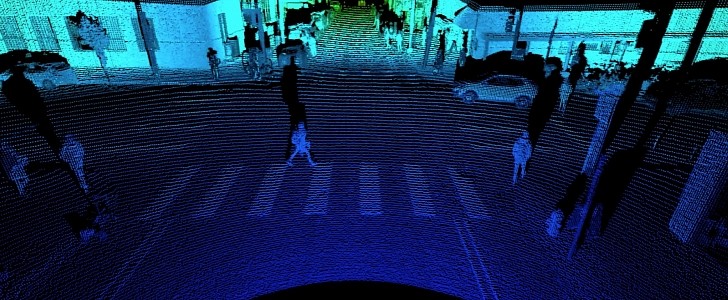If you’re looking to the future of the automotive industry, you can do worse than to listen to the wise counsel of the Volkswagen Group CEO. According to Herbert Diess, it’s not electric vehicles, but autonomous cars which marked a watershed moment and will prove to be the "real game-changer" for the industry.
"Autonomous driving is really going to change our industry like nothing else before," Diess said recently on the sidelines of the IAA Munich auto show in Germany.
Diess says the adoption of electrified car technology was a sort of “easy" step in comparison to the ultimate onset of self-driving vehicles.
"The real game-changer is software and autonomous driving," Diess says. "By 2030, about 85 percent of our business is cars, private cars, privately owned, shared rental cars. And about 15 percent of mobility should be shuttles and mobility as a service."
As such, Diess says part of the target is to blow past Tesla and turn VW Group into the number one seller worldwide of electric vehicles by 2025.
But it’s the software services for autonomous cars he sees as the cornerstone of the German automaker's future. To that end, VW has joined in and invested in a self-driving software startup, Argo AI.
Diess says VW expects 1.2 trillion euros ($1.43 trillion USD) of total sales in the software-enabled car sector will be a reality by 2030, and that such vehicles will ultimately account for a full quarter of the worldwide mobility market.
One of the critical offerings from VW, the ID. Buzz AD1 (Autonomous Driving) test vehicle, makes use of a LiDar system on the roof to keep it on track.
To a large extent, Diess’ comments are in reaction to the news that Greenpeace and German environmental NGO, Deutsche Umwelthilfe, are intent on taking legal action against German carmakers (Volkswagen among them) should they fail to implement and advance policies aimed at taking on climate change.
And the unveiling of the ID. Buzz AD1 is part of VW’s answer to those challenges. It’s a testbed for what will be the self-driving version of the upcoming ID Buzz electric minivan.
Diess says that minivan is set for testing on the streets of Munich, and added that a production version will be rolled out for use in commercial mobility services - such as ride-hailing - starting as soon as 2025. But to make it happen, VW will have to solve problems that have so far stymied a number of automakers such as technical hurdles and regulatory questions.
Diess says the adoption of electrified car technology was a sort of “easy" step in comparison to the ultimate onset of self-driving vehicles.
"The real game-changer is software and autonomous driving," Diess says. "By 2030, about 85 percent of our business is cars, private cars, privately owned, shared rental cars. And about 15 percent of mobility should be shuttles and mobility as a service."
As such, Diess says part of the target is to blow past Tesla and turn VW Group into the number one seller worldwide of electric vehicles by 2025.
But it’s the software services for autonomous cars he sees as the cornerstone of the German automaker's future. To that end, VW has joined in and invested in a self-driving software startup, Argo AI.
Diess says VW expects 1.2 trillion euros ($1.43 trillion USD) of total sales in the software-enabled car sector will be a reality by 2030, and that such vehicles will ultimately account for a full quarter of the worldwide mobility market.
One of the critical offerings from VW, the ID. Buzz AD1 (Autonomous Driving) test vehicle, makes use of a LiDar system on the roof to keep it on track.
To a large extent, Diess’ comments are in reaction to the news that Greenpeace and German environmental NGO, Deutsche Umwelthilfe, are intent on taking legal action against German carmakers (Volkswagen among them) should they fail to implement and advance policies aimed at taking on climate change.
And the unveiling of the ID. Buzz AD1 is part of VW’s answer to those challenges. It’s a testbed for what will be the self-driving version of the upcoming ID Buzz electric minivan.
Diess says that minivan is set for testing on the streets of Munich, and added that a production version will be rolled out for use in commercial mobility services - such as ride-hailing - starting as soon as 2025. But to make it happen, VW will have to solve problems that have so far stymied a number of automakers such as technical hurdles and regulatory questions.





